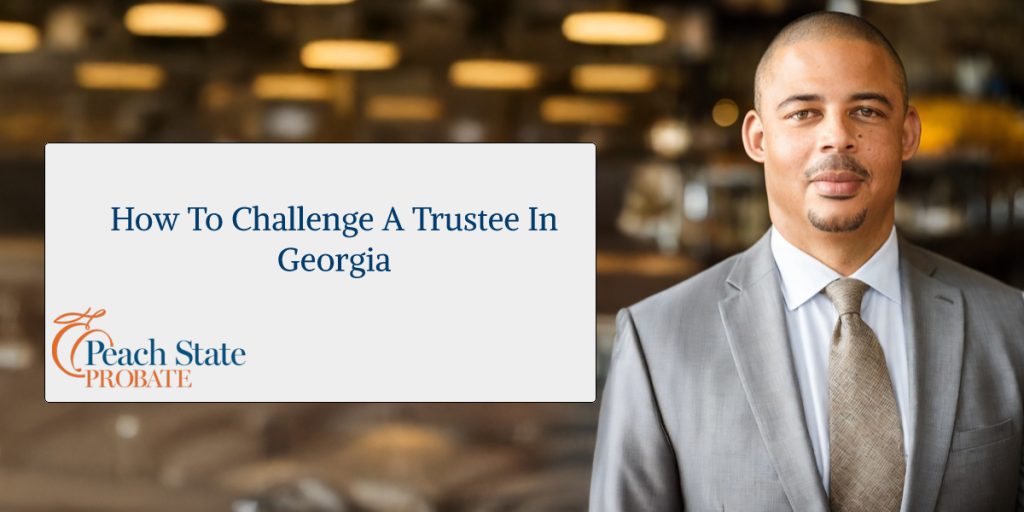## Understanding Executor Disputes in Georgia
Executor disputes arise when disagreements occur over the actions and decisions made by a trustee or executor of an estate. In Georgia, these disputes can involve challenges to the validity of decisions made regarding the distribution of assets, management of estate affairs, and adherence to the fiduciary duties mandated by law. It is essential for beneficiaries and heirs to understand the grounds on which a challenge can be filed, as well as the legal implications of such disputes.
Disputes can stem from perceived misconduct, negligence, or lack of transparency on the part of the executor. Common issues that lead to executor disputes include unequal distributions among heirs, failure to inform beneficiaries of important decisions, or mismanagement of estate assets. Beneficiaries often find themselves feeling sidelined, leading to tension and legal challenges that may escalate if not addressed promptly and effectively.
Understanding the nuances of executor disputes allows individuals involved to better navigate their rights and responsibilities. The more informed one is about the dynamics at play, the better they can formulate a strategy for addressing grievances, whether through negotiation with the trustee or, if necessary, pursuing legal action.
## The Importance of Addressing Executor Disputes
Executor disputes matter significantly in Georgia as they can impact the administration of an estate and the distribution of assets. When disagreements arise, they not only delay the probate process but can also lead to financial losses. The emotional distress that accompanies often complicated family dynamics may exacerbate the impact of these disputes. Thus, understanding your rights and options is vital in safeguarding one’s entitlements from an estate.
Moreover, executor disputes often reflect deeper issues within families that can affect relationships for years to come. By addressing these disputes early on, parties may have the opportunity to resolve them amicably, preserving relationships and preserving family unity in the long run. Failure to act can lead to prolonged court battles, to the detriment of all parties involved as legal fees mount and inheritances dwindle.
Engaging in proactive measures, such as mediating disputes or consulting legal professionals, can help clarify positions and responsibilities, facilitating a smoother probate process. Timely resolutions can also minimize the emotional toll on families, providing a sense of closure and allowing heirs to move forward.
## Legal Framework Pertaining to Executor Disputes in Georgia
In Georgia, the legal framework governing executor disputes is established through both state statutes and common law. The law mandates that executors adhere to fiduciary responsibilities, which include the duty of care, the duty of loyalty, and the duty to act in good faith. Executors who violate these duties may face challenges from beneficiaries who question their actions, seeking to rectify perceived injustices.
The process for challenging a trustee involves intricate legal procedures. Typically, beneficiaries must file a petition in the probate court that outlines the specific grievances against the executor. The court will then schedule a hearing where both parties can present their evidence and arguments. The judge will decide whether the executor acted appropriately under the law or if corrective measures are necessary.
Furthermore, Georgia law provides specific grounds on which executor disputes can be based, such as failure to perform duties, fraud, self-dealing, and misrepresentation of estate assets. Understanding these grounds is essential for beneficiaries considering a challenge, as it shapes the legal arguments they may present in court.
## Real-World Examples of Executor Disputes
Executor disputes often come to light through various real-world scenarios that demonstrate the complexity and challenges involved in estate management. A typical case may involve siblings who discover that their late parent’s executor has sold valuable property below market value and failed to distribute the proceeds equitably. Such situations often arise due to perceived conflicts of interest, where the executor may stand to benefit personally from estate proceedings.
Another example involves cases where the executor neglects to inform beneficiaries of their rights regarding estate proceedings. This can lead to misunderstandings and disputes over the division of assets, with some heirs feeling disadvantaged or excluded from the process. Lack of communication and transparency can quickly escalate into full-blown conflicts, making resolution difficult without intervention.
Moreover, cases may involve allegations of fraud, where heirs believe that the executor has withheld pertinent information or intentionally mismanaged estate assets to favor one beneficiary over another. These disputes can result in lengthy legal battles that divert attention from the deceased’s intent and complicate the grieving process.
## Practical Steps to Challenge a Trustee in Georgia
Challenging a trustee in Georgia involves several practical steps that beneficiaries should consider taking. Firstly, it is essential to gather all relevant information and documentation related to the estate. This includes reviewing the trust document, wills, financial records, and any correspondence with the executor. Understanding the specifics of the case will provide a solid foundation for any claims made.
Secondly, beneficiaries should attempt to communicate directly with the trustee. Open dialogue can sometimes lead to amicable resolutions without necessitating formal legal action. By expressing concerns and seeking clarification on decisions made, heirs may find that misunderstandings can be resolved more simply than anticipated.
If direct communication fails to resolve the dispute, beneficiaries should consider the next steps carefully. Filing a formal petition in probate court might be necessary, which should be done in accordance with the established legal procedures. Utilizing a qualified attorney familiar with Georgia probate law can streamline this process, ensuring that all legal requirements are met and maximizing the chances of a successful outcome.
## Mistakes to Avoid When Challenging a Trustee
While seeking to challenge a trustee is a legal right, there are common mistakes that individuals should be aware of in order to navigate the process effectively. Failing to act promptly is a frequent misstep since executor disputes are often bound by strict time limits. Delays can jeopardize a beneficiary’s ability to seek recourse if the window to challenge the actions of the trustee closes.
Additionally, overlooking the importance of thorough documentation can weaken a case. Beneficiaries should be diligent in collecting all relevant evidence supporting their claims, whether it be financial transactions, correspondence, or even testimonies from witnesses. A lack of supporting documentation can leave assertions unproven, diminishing their credibility in a court setting.
Lastly, not consulting with a legal professional is a mistake that can lead to costly misjudgments. Even when beneficiaries believe they have a strong case, understanding the intricacies of probate law is vital for achieving a favorable outcome. An experienced attorney can provide strategic advice, anticipate potential challenges, and help in presenting a solid case to the court.
## When to Seek Legal Assistance
Deciding when to seek legal assistance during an executor dispute is critical to the course of action one might take. If initial attempts to resolve the issue amicably fail, it is prudent to consult with an attorney who specializes in probate issues. Early legal intervention can help clarify rights and wrongs and may even facilitate amicable resolutions before escalating matters to court.
Additionally, if the nature of the dispute involves complex legal principles, such as allegations of fraud or breaches of fiduciary duty, specialized legal assistance will be invaluable. Navigating probate law without informed guidance can lead to unintentional errors that undermine a party’s standing in court.
Further, if communication with the trustee becomes contentious or adversarial, having an attorney to represent one’s interests can mitigate personal conflict. Legal representation can bring a level of professional decorum to interactions, ultimately fostering a more productive conversation focused on resolving the issue at hand.
## Advantages of Legal Representation in Executor Disputes
Engaging legal representation during executor disputes offers numerous advantages that can significantly influence the outcome of an estate challenge. First and foremost, attorneys bring valuable knowledge and familiarity with probate law and processes, which can clarify the situation and legal options available. This expertise helps clients navigate the complexities of the probate system with greater assurance.
Moreover, legal representatives can develop effective strategies tailored to each individual case. They not only assist in gathering necessary documentation but also in articulating arguments clearly and persuasively in court. Ultimately, this increases the chance of a successful resolution that aligns with the client’s interests and goals.
Additionally, having legal counsel allows for emotional distance from the conflict. Executor disputes can be deeply personal and emotionally charged, and having a professional advocate can reduce stress and distractions. This professional representation enables clients to focus on their own well-being while entrusting their case to someone who is equally invested in achieving a positive outcome.
## How Peach State Probate Facilitates Executor Dispute Resolutions
Peach State Probate distinguishes itself as a premier legal resource for addressing executor disputes throughout Georgia. Clients benefit from a dedicated team of professionals who are committed to understanding their unique situations and developing tailored strategies for resolution. Whether clients are coping with disputes over asset distribution or questions regarding fiduciary duties, Peach State Probate delivers comprehensive legal support at every step.
The firm prides itself on its deep understanding of Georgia probate law and its nuances, enabling them to address even the most complex executor disputes. By relying on a combination of legal knowledge and negotiation skills, the team employs effective methods to facilitate conversations between parties, seeking amicable solutions before matters resort to litigation.
Furthermore, clients are assured of a supportive environment where their concerns are heard, and their goals are prioritized. Peach State Probate aims not only to resolve disputes but to protect family relationships and ensure that estate matters are managed with integrity and respect. This commitment to client-focused service solidifies the firm’s reputation as a leading choice for legal representation in executor disputes across Georgia.




